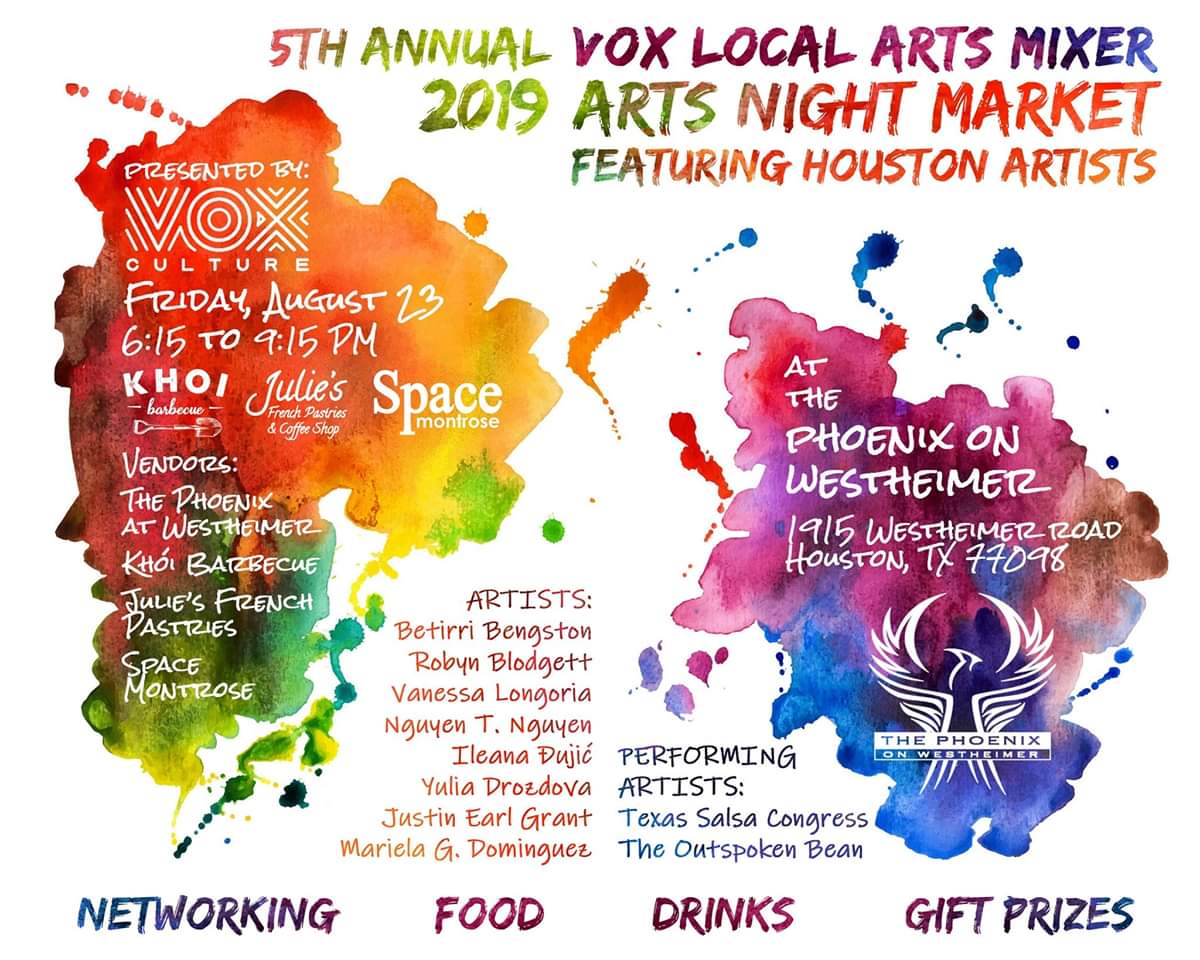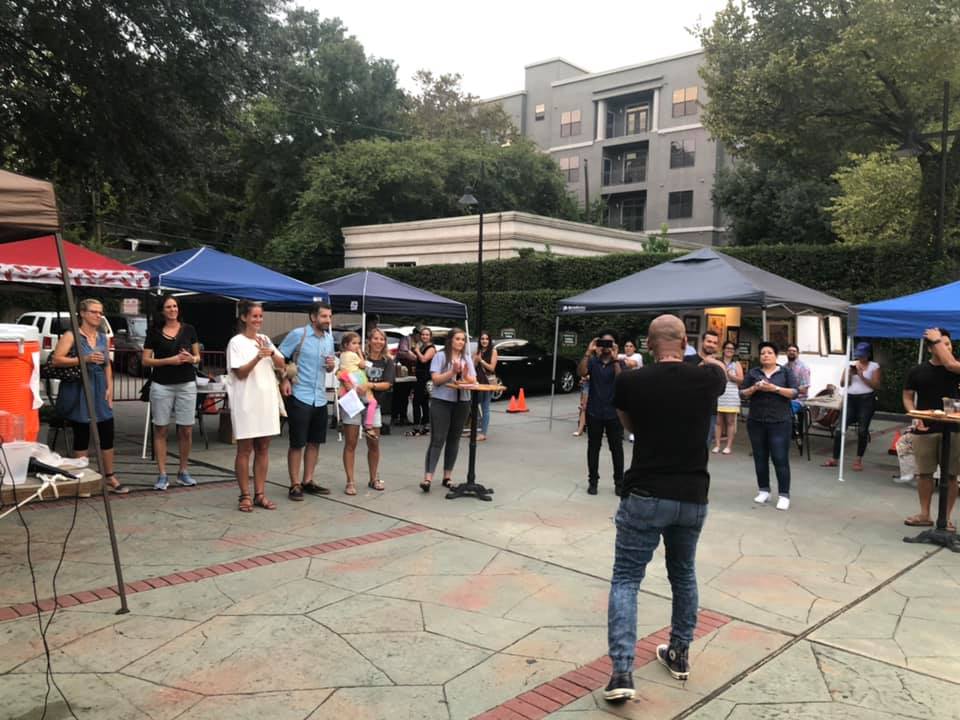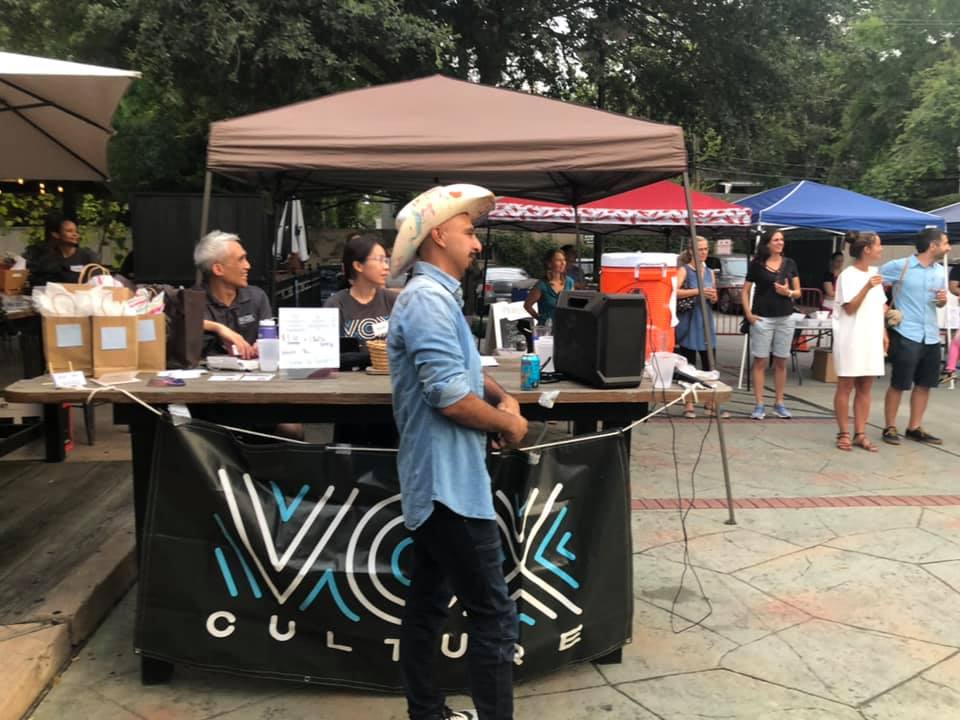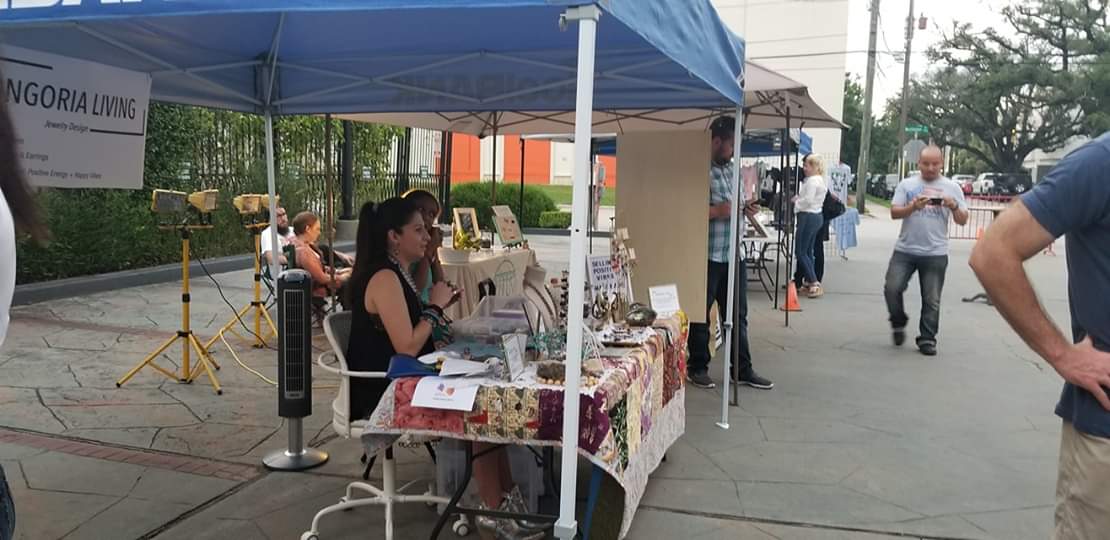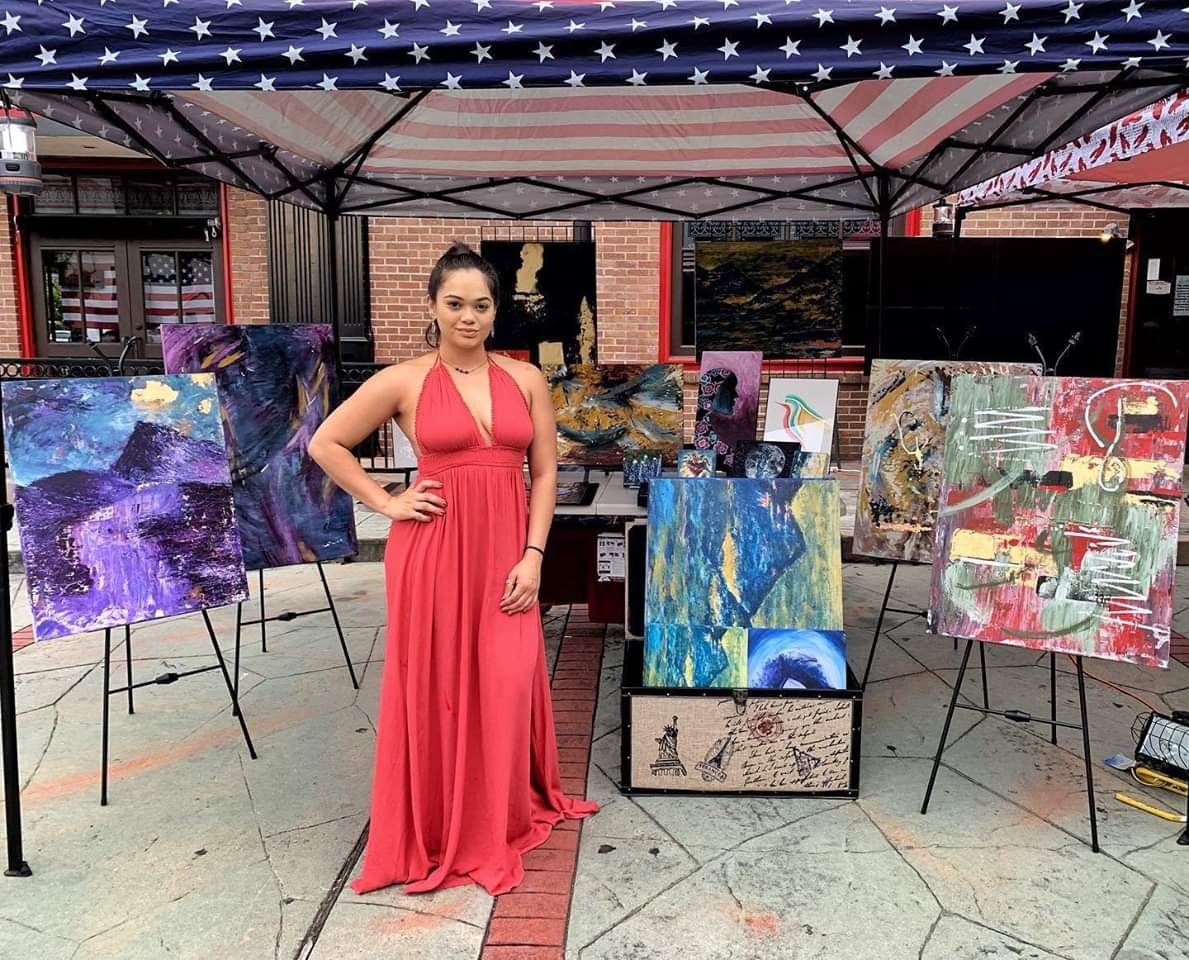ED Viktor Kopic, Departs from Vox Culture
 Sunday, August 23, 2020 at 9:18AM
Sunday, August 23, 2020 at 9:18AM There comes a point in our lives that we yearn for something more than what we currently have. We strive to create a world where we can see and feel the impact that we create and continue to grow with every seed we plant. For myself however, as some of you may already know, this time has already been coming and it has finally arrived.
It is with a heavy heart that I share with you that effective, Thursday, September 3rd, 2020, I will be formally resigning as the Executive Director of Vox Culture.
While some steps have already been taken throughout this year to smoothen the transition, Ted Law will be serving in the interim as the Executive Director of Vox Culture, until a proper replacement is identified.
If there could be a possibility to summarize my past 8+ years at Vox Culture I would, but between the various experiences, learned lessons, and gratitude to many of you, I am bound to leave some details and moments unmentioned. However, I will do my best to reflect as much and as briefly here below.
Most who have followed and supported Vox Culture over the years are aware of the unique standing that the organization holds, as an advocacy organization that uses arts and creativity to address various social issues. To even get our identity/messaging straight in the community was one of the early challenges brought on, but one that the Vox Core team, the Vox Board, and I have worked on continuously to perfect in those years. The truth is, that is still a work in progress, and overall Vox Culture has become an improved organization over the years, but one that is still imperfect.
As I reflect upon this, it is also something that I have realized that this imperfection IS what makes the essence of what Vox Culture is meant to be, or at least what I in part hoped it would be. A quirky organization with the unconventional ideas maybe, but at its foundation, one that has become flexible and adaptable to any change that has come our way.
Vox Culture has further educated me on my strengths and my weaknesses as a leader and individual, challenged me to learn, become better, and be humble – especially in accepting of the failures that have presented themselves along the way, a few admittedly that I know I have could have done a better job in addressing or simply dropped the ball on. Despite these shortcomings and many other challenges that have presented themselves, I cherish the lessons learned via Vox Culture as it has provided the building blocks to the person I am today. Even with my departure, I have confidence that while the path may currently not be easy, between the current Vox leadership and Core Team, the organization will continue to thrive and grow stronger in the years to come.
There are various experiences at Vox Culture that have both shaped my time with the organization and that have provided lifetime memories. Other than for playing the saxophone, piano, and guitar when I was younger, its hard to admit that I was anything close to being an artist or walking in their shoes, but admittedly I have always been a fan and appreciative of the work and creative imagination that goes into the products and stories created by those who are.
So to all the artists and creative souls who have contributed to Vox Culture’s fundraisers and community/advocacy projects throughout the year, I owe you two things, a thank you and a apology. I thank you for the sacrifices that many of you have made for our work, with some of you who were even while still finding your own footing when we first met. I thank you for the time and dedication that you gave to each one of your contributions, and the footprints that you left on both the organization and the community. Mostly, I thank you for taking a chance on both Vox Culture and for believing in my and our teams vision in how we chose to give a voice to those in our community, and where we saw we could make an impact. Without your creativity and passion, our work would be near impossible. While many in the Houston community appreciate your work, many of you do not get enough of the recognition, not to mention the financial support that can help guide you to the next steps of your arts careers. It is something admittedly that Vox Culture has not been able to fully address, but which I hope to continue to advocate and provide advice and guidance to even upon my departure.
Additionally, I would like to thank the various businesses, key financial supporters, and our followers/fans who have donated monetary support, space, or gifts and items to a variety of Vox Culture’s events and fundraisers, or simply attended our events. Your participation, sponsorships and support helped fuel the growth, creativity, and helped sustain the various advocacy projects developed over the years. As to the various businesses we have worked with, while the challenges of 2020 are especially not easy for many of you as well, please do not hesitate to reach out to me personally, and to Vox Culture overall, at any point to explore ways that we can further help return the favor and garner greater support from the community where able.
As to our various organization partners, it is through you that I both learned how to be an advocate and stand for various social issues while learning how to be a better and more intuitive leader. While there is still more work to do for us all, I look forward to seeing Vox Culture work with you all once again soon and continue to build close relationships as well.
Finally, to the Vox Culture Volunteers, Interns, Board, and Core Team leadership – words alone cannot describe not only your contributions and impact that many of you have had on Vox Culture, but on myself as well. For many of you who are serving in the present, and a number of you who I have had the honor of working along side in the past, I thank you for the support, the advice, the ingenuity, the spirit, and dedication you have given in the best and worst of times. The energy that many of you have given during your involvement or time with Vox in many ways played into my own motivation and ambition to continue with Vox and drive the organization forward and through the many challenges that we have faced over the years. I have not been perfect however, and while I may have left some of you down in years past or our visions may have not aligned for the future, I would want to let those of you know that I will always appreciate and cherish all that you shared and what I learned from you, even if in some cases it may have been later rather than sooner. In short, its been my utmost pleasure to be a part of the various teams that have shaped Vox over the years; and as I have always shared, my goal with you all has always been for you to leave your fingerprints over this organization in order to build the framework and create the ripple effects of how advocacy could be achieved by using our creativity and the arts – and many of you achieved in doing so.
It has been a privilege for me to serve with Vox Culture for the past 8.5 years as both Executive Director and originally as Research & Development Coordinator. The memories, experiences, and the values learned can only be summarized here in terms of the gratitude I have to both this organization, and all who I have had the chance to connect through it. I will never forget the opportunity that Vox Culture gave me in order to prove myself and frankly, without the leaderships support, I would not be who I am today – so specially to Ted Law and Alissa Kit, I thank you for believing in me and for taking a chance on me as well. Although I may be departing Vox Culture, I will continue to support the organization any way I can, and when it comes to giving or being a part of the voice of the many social issues that I have had the chance to learn about and become involved with, I will continue to do so as well. Afterall, despite where life leads us, it does not mean that we stop being a voice for those who are unheard. As I will, I hope that in your own ways you always choose to be VOX - you continue to remain aware, you continue to fight, and for however long it takes till change takes place you continue to speak out; whether it be for yourself, your community, your vision of the world, or for those people and causes that matter you.

- Viktor Kopic, Vox Culture Executive Director (2013-2020)

